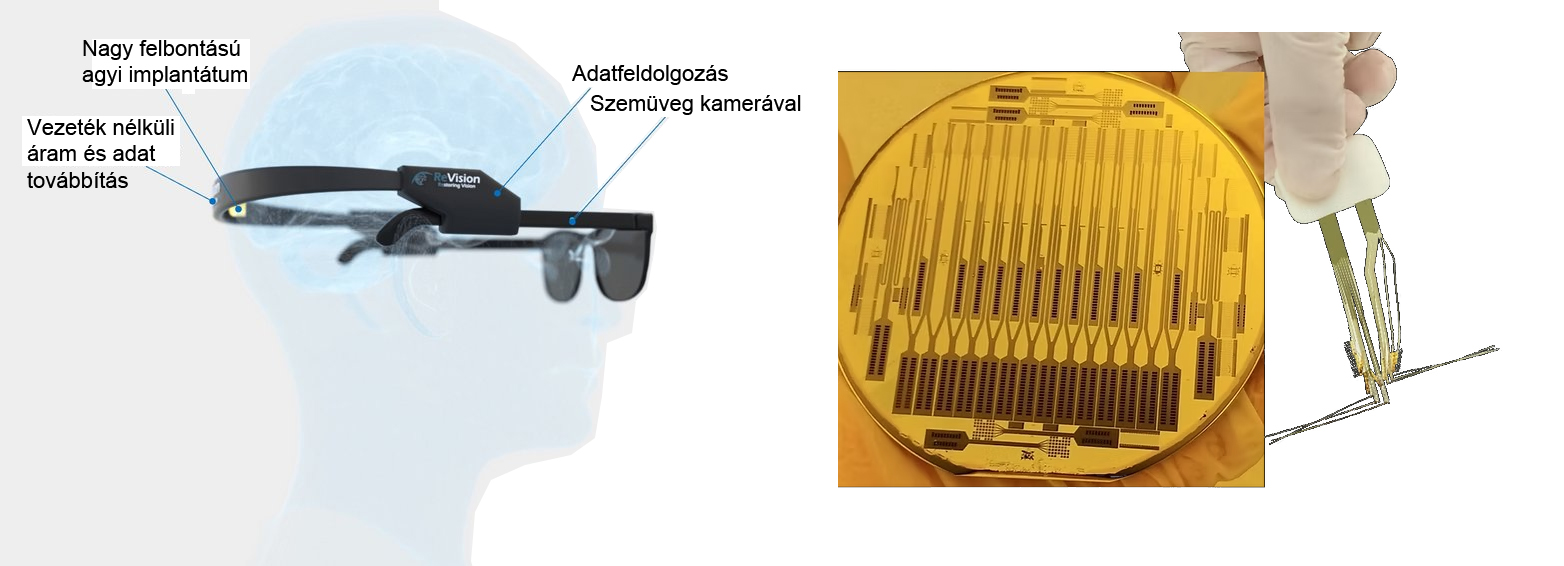Development of Vision-Restoring Prosthesis Enters New Phase
Device to Be Tested in Humans with the Involvement of the HUN-REN Research Centre for Natural Sciences
The human testing phase can now begin for the vision-restoring prosthesis developed by the Belgian startup ReVision Implant, following the consortium’s receipt of nearly EUR 2.5 million in funding from the European Innovation Council’s (EIC) Transition program. The consortium bringing the project to life is composed of the startup behind the technology and three research groups, including the Integrative Neuroscience Research Group of the Institute of Cognitive Neuroscience and Psychology at the HUN-REN Research Centre for Natural Sciences (HUN-REN RCNS).
The prestigious European grant enables the consortium to advance the prosthesis toward human application. The research group at the HUN-REN Research Centre for Natural Sciences together with a Spanish research group will be responsible for conducting the first human trials of the device.
On the Hungarian side, testing is expected to begin in early 2026, following the necessary regulatory approvals. The research team will be led by Lucia Wittner. In the short-term experiments, researchers will examine how human brain tissue responds to the implantation of the prosthesis, and will also test the mechanical properties of the first microelectrodes designed and manufactured specifically for human use. Although there are significant similarities between animal models and the human brain, it remains crucial from both a safety and long-term usability perspective to understand how microelectrodes and human brain tissue interact over time.
The tests will be conducted on volunteers undergoing surgery at Semmelweis University’s Department of Neurosurgery and Neurointervention, where operations are performed for tumor or epileptic focus removal.
If the Hungarian trials prove successful, a longer-term study will follow in Spain, where the implants will be placed for at least six months in the brain of a volunteer who has completely lost their sight. The Spanish research team, led by Eduardo Fernandez, brings extensive experience in the field of visual prosthesis research. Using an earlier implant equipped with far fewer electrodes, Fernandez has already demonstrated that simple visual percepts can be evoked through precise stimulation of brain microelectrodes.

The consortium’s goal is to achieve a tenfold improvement in performance compared to previous results. Such progress would open the door to treating most forms of blindness, not only those linked to specific causes, a limitation that characterizes many other vision restoration therapies currently under development.
The Belgian startup ReVision Implant has developed the pioneering brain prosthesis designed to partially restore vision for people who have lost their sight over the past five years.
“We are focused on long-term stability and have created a patented system that securely anchors the electrodes within brain tissue,” said Maarten Schelles, Chief Technology Officer at ReVision Implant. “Every design decision we make aims to ensure the implant’s lifespan exceeds 20 years. We also stimulate the brain in a smarter way, extracting more from the system without needing to increase the number of electrodes.”
“Over the past five years, in collaboration with two research groups in Leuven, we have developed a concept that indicates the potential success of the brain prosthesis,” said Frederik Ceyssens, co-founder and CEO of ReVision Implant. “During this time, animal studies have confirmed that the implantable device can indeed generate points of light in the brain, and its biocompatibility has proven to be excellent.”
ReVision Implant is currently engaged in two active strategic research collaborations with publicly listed medical technology companies that have expressed strong interest in its platform. The company is also in the process of raising a new round of funding to further develop its prototypes into a market-ready medical product.

